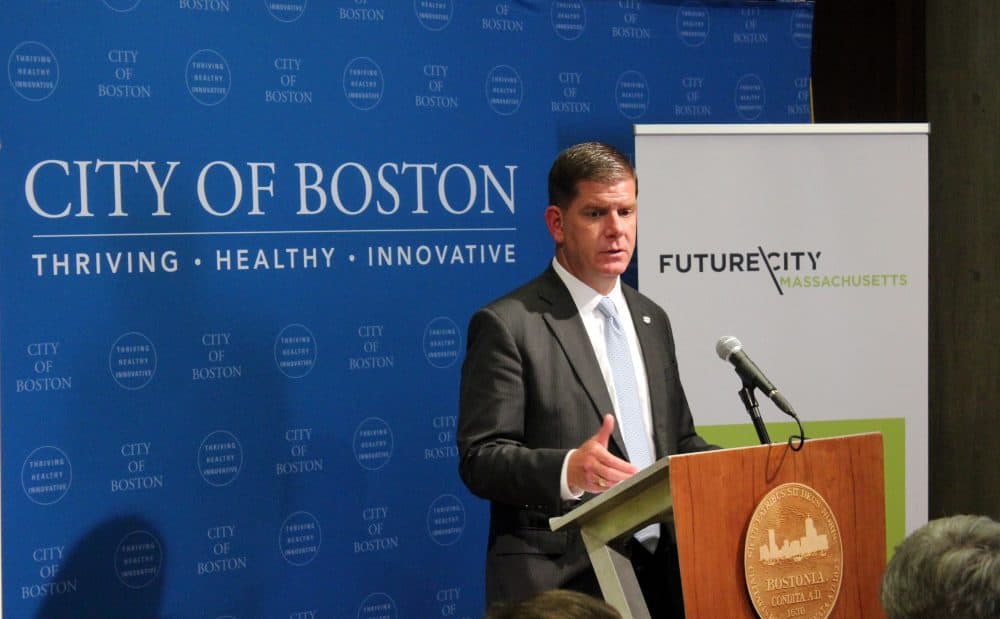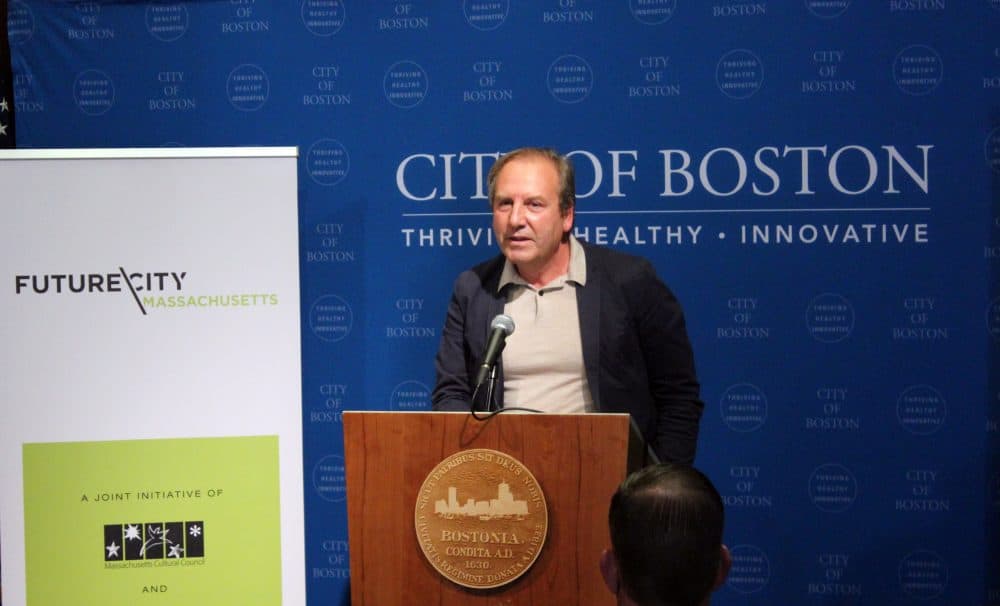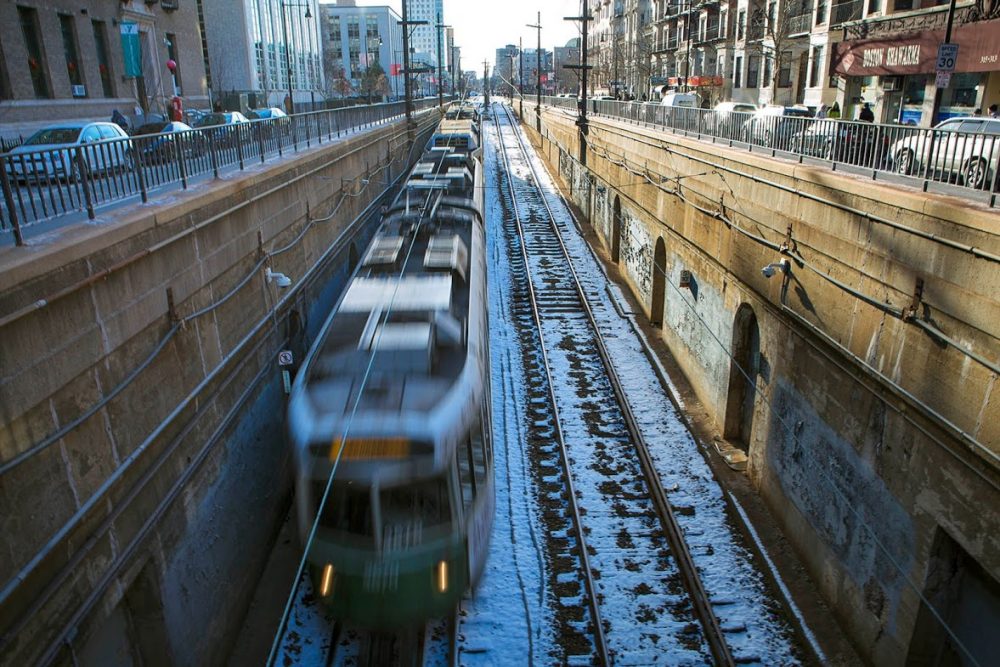Advertisement
Futurecity To Wed Arts And Development In Fenway District, Springfield And Worcester

Mayor Marty Walsh on Tuesday announced a joint arts initiative, Futurecity Massachusetts, which plans to foster creativity and culture while elevating public spaces in the state.
Walsh was joined by Worcester Mayor Joseph Petty and a representative from Springfield to publicize the plan to work with arts and civic leaders in Massachusetts’ three largest cities, with support from the Massachusetts Cultural Council (MCC) and The Boston Foundation.
Walsh described a new approach to transforming cities that puts arts, culture and creativity at the center of redevelopment and revitalization. This comes just one day after Gov. Charlie Baker proposed a veto to reduce funding for the arts, humanities and sciences through the MCC by more than half.
Each of the three cities will see a focus on certain districts. For Boston, Futurecity will center its work in the Fenway Cultural District; in Worcester, the Salisbury Cultural District; and Springfield, the Central Cultural District.
Futurecity Massachusetts establishes the first project of its kind in the United States by working alongside Massachusetts’ city officials, urban planners and arts and business leaders in the three cities. By targeting promising areas for development and job growth, the London-based Futurecity plans to work on key real estate projects within state-designated cultural districts.

With more than 200 partnerships across the globe, Mark Davy, Futurecity’s founder, sees this opportunity as the first step in forming a relationship within the U.S. “Massachusetts has all the kind of ingredients that we would want from a project — property, infrastructure-driven change and regeneration, universities, tech companies — everything you need to make a city great.”
“This is the next frontier of the creative economy in which the arts assert their value as equal partners in the urban realm,” MCC’s executive director, Anita Walker, said in a statement. “The Fenway, downtown Springfield and Worcester’s Salisbury Street are richer in every way because of the presence of artists, and cultural and heritage institutions. Futurecity Mass will help pull the arts out of the backseat and drive development in these neighborhoods.”
Davy expects the Fenway District to act as a model for the rest of Boston to eventually catch on. “It's a fantastic opportunity for obvious reasons with the cultural organizations already there — the Huntington Theatre, Avenue of the Arts and so on. If it works, it can be a model that can be rolled out elsewhere.”

Worcester’s Mayor Joseph Petty is anticipating the continuation of success through its art and creativity to drive not only economic assets, but also visitors. The rise of murals has created a more walkable and friendly Worcester, while designing a unique identity for the city.
Though Springfield Mayor Domenic Sarno was unable to attend the press conference, Springfield’s principal planner, Scott Hanson, relayed the city’s excitement over the initiative. “As Springfield is known as the city of firsts,” Hanson said, “it seems only appropriate that Mark Davy’s first work in the U.S. would include the city of Springfield.”
The Boston Foundation’s president, Paul Grogan, spoke highly of Walsh’s commitment to the arts and the significance of art in Boston’s culture. However, concern about funding for the arts was on people’s minds because of Baker’s attempt to reduce the MCC budget. Walker said, “This is the single largest cut to a state arts agency in the U.S. this year.”
Mayor Walsh reinforced his opposition to the veto by saying, “As mayor of the city of Boston, I am going to support the override of the veto, because it is important for us in this particular point and time to increase money in arts and culture, not cut money out of arts and culture.”
Walker later said that with support from The Boston Foundation and MCC’s prepayment to Futurecity, the plan would be carried out accordingly. Davy, Walker, Grogan and others will walk through each of the three districts with municipal officials and city planners, meet real estate developers, legislators and media, and join discussions with arts and cultural leaders at public receptions.
Davy will remain in Massachusetts until July 19 and will return in late September to present plans for each of the three cities to the groups involved. Upon approval, Davy and Futurecity will turn those ideas into projects.
Michael Hagerty is an intern for The ARTery. He currently studies communication at UMass Amherst and is the production and training director at the university's radio station WMUA.